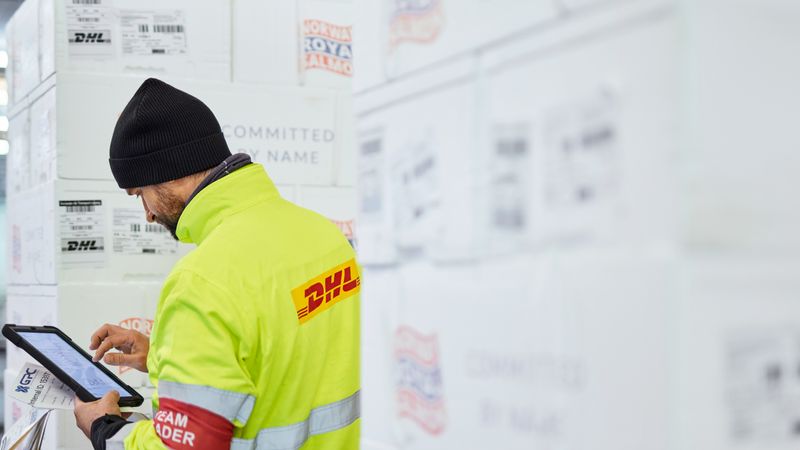Grow your business with the Discover newsletter
Logistics advice & insights straight to your inbox
Subscribe now
Navigating international business import and export can be challenging, and understanding international trade compliance rules is vital to the success of your business. If your organisation is involved in international trading – especially to Europe, the latest European Union (EU) shipping regulations is something you should be aware of. As of 1 March 2023, the EU is introducing a new customs compliance policy that focuses on safety and security measures prior to the acceptance and arrival of goods. This is supported by an advanced cargo information system known as Import Control System 2 (ICS2).
Under the new EU shipping regulations, businesses that import or export goods must submit an Entry Summary Declaration (ENS) electronically via ICS2. This system aims to increase security, simplify procedures, and improve compliance checks.
It is essential to ensure that the ICS2 declaration is submitted before the goods arrive in countries within the EU, and that the information provided is accurate. Failure to do so may result in delays, fines, and potentially having goods denied entry at the customs checkpoints.
Non-compliance can cost your business more than you think, but you can reduce the risk by paying attention to the following areas:
Undervaluation of goods is a common problem that businesses face when involved in international trade. Understating the value of goods being shipped can lead to underpayment of taxes and duties, which is considered tax evasion. This can result in severe penalties such as fines and the seizure of goods. Additionally, inaccurately declared goods' value can also impact duties and taxes calculations and may result in goods being held up in customs clearance.
To avoid these consequences, it is crucial for businesses to collaborate with their shipping partners to ensure that the goods' value is accurately declared and all applicable taxes and duties on import and export goods are duly paid. This requires a proper understanding of the regulations surrounding customs declarations, which can be complex and confusing for those not familiar with them.
Counterfeit products are imitation goods that infringe on intellectual property rights, such as trademarks and copyrights. Businesses that import or export such fake goods may be subject to significant fines and penalties. Additionally, counterfeit goods are often undervalued, leading to tax evasion and further penalties.
To avoid non-compliance risks like this, businesses must be vigilant when it comes to identifying and avoiding counterfeit goods. This involves conducting due diligence on the products being shipped, ensuring that all intellectual property rights are respected, and verifying that the goods being shipped are authentic.
Providing an incorrect description of the goods being shipped can result in customs authorities holding up the shipment or even rejecting it altogether. This can cause significant delays and additional costs for businesses, as well as impact the calculation of duties and taxes. Goods descriptions are used to determine the appropriate tariff classification. This then enables customs officers to calculate the amount of duty and taxes that need to be paid. Inaccurate descriptions can lead to incorrect tariff classification, resulting in overpayment or underpayment of duties and taxes.
To avoid these risks, businesses must ensure that the Goods Description (GD) accurately describes the goods being shipped. This involves providing accurate and detailed information about the type of goods, quantity, weight, and any other relevant information. It is important to avoid using vague or general descriptions that do not provide enough information for customs authorities to properly identify and classify the goods.
Providing inaccurate shipper and receiver information can lead to non-compliance issues and cause significant problems for businesses. Using fake names or inaccurate information can cause delays in customs clearance, impact denied party screening, and import security screening by authorities. This can result in the shipment being held up or even rejected, causing additional costs, delays, and potential damage to the reputation of the business.
To avoid these risks, it is crucial to ensure that True Shipper and Receiver (TSR) information is provided accurately. This involves providing accurate and up-to-date information about the shipper and receiver, including their names, addresses, and contact details. It is important to ensure that this information is provided in a consistent format and that any changes to the information are updated promptly.

Documents are necessary when shipping out of Indonesia. Some documents required for export to Europe under the new shipping regulations include:
In the world of international business, compliance is king. And when it comes to shipping to the EU, compliance is not just important – it is absolutely critical. With the latest EU shipping regulations newly in effect, businesses that import or export goods need to be well-versed in the new rules, including the use of the ICS2.
But compliance is not just about ticking boxes and filling out forms. It is about making sure your business operates ethically and avoids risks like non-compliance, fines, and damaged reputation. That is why it is important to pay attention to the four key areas that can cause non-compliance issues during customs clearance: inaccurate valuation of goods, shipping counterfeit products, incorrect goods descriptions, and wrong shipper and receiver information.
Global logistics service providers like DHL Express can help businesses navigate the complex regulations of shipping to and from Indonesia, the EU, the United Kingdom (UK), and beyond. With our expertise and support, businesses can avoid risks and take advantage of new opportunities for growth and success.
Compliance is not just a legal obligation; it is a way to protect your business's reputation and ensure long-term success in overseas shipping. By staying informed of the laws and working with trusted partners, businesses can navigate the challenges of international trade and thrive in the global marketplace. Start by creating a business account with us today.